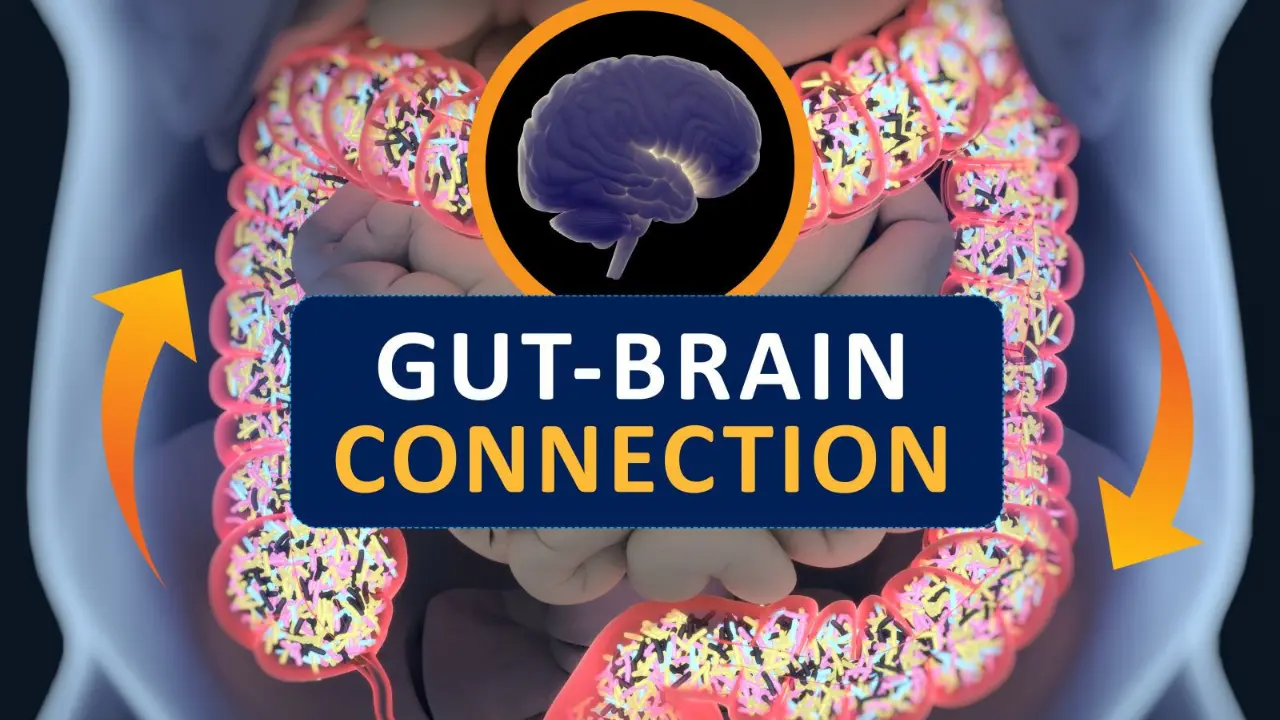Table of Contents
The Connection Between Gut Health and Anxiety is a topic that has gained significant attention in 2025, as more scientific studies highlight the intricate relationship between our digestive system and mental health. Researchers, healthcare professionals, and wellness enthusiasts are uncovering how the gut-brain axis influences mood disorders, stress levels, and emotional resilience. In this article, we’ll explore the latest evidence, key mechanisms, and actionable tips to support both gut health and mental well-being.
The connection between gut health and anxiety lies in the gut-brain axis—a two-way communication system where gut microbes influence brain chemistry, stress responses, and emotional regulation. A balanced gut microbiome supports mental wellness, while imbalances may contribute to anxiety disorders.
Understanding the Gut-Brain Axis: The Key to Mental Wellness
The gut-brain axis is the complex network that links your gastrointestinal tract with your central nervous system. This connection is mediated by:
- Neural pathways (like the vagus nerve)
- Chemical messengers (neurotransmitters such as serotonin and GABA)
- Immune system signals
- Microbial metabolites (like short-chain fatty acids)
About 90% of serotonin, a key mood-regulating neurotransmitter, is produced in the gut. This demonstrates how digestive health can directly affect emotional balance.
Scientific Evidence on Gut Health and Anxiety in 2025
Recent studies published in leading journals show compelling links:
| Study | Findings | Publication |
|---|---|---|
| Microbiome Diversity & Anxiety | Low gut microbiome diversity associated with higher anxiety scores in adults | Nature, 2025 |
| Probiotics and Stress | Daily probiotic intake reduced perceived stress by 30% in a 12-week trial | ScienceDirect, 2025 |
| Gut Permeability & Mood | Increased gut permeability linked to mood instability | NCBI, 2025 |
- Related post: 7 Empowering Ways to Set Boundaries at Work Without Feeling Guilty
- Read also: Midlife Reset: 8 Habits That Helped Me Rebuild Confidence & Income at 45
- Explore: Functional Fitness for Beginners: Exercises for Real-Life Strength
How Gut Imbalance Can Trigger Anxiety Symptoms
An unhealthy gut may contribute to anxiety through:
- Inflammation: Gut dysbiosis can promote chronic inflammation, affecting brain health.
- Neurotransmitter disruption: Reduced production of serotonin and GABA leads to mood disorders.
- Heightened stress response: A compromised gut may increase cortisol levels, intensifying anxiety.
Practical Tips to Support Gut and Mental Health
Here’s how you can nurture both your gut and emotional well-being:
- ✅ Eat a fiber-rich, diverse diet (fruits, vegetables, whole grains)
- ✅ Include fermented foods (yogurt, kefir, kimchi)
- ✅ Consider probiotics and prebiotics (consult a healthcare provider)
- ✅ Manage stress (mindfulness, yoga, deep breathing)
- ✅ Limit ultra-processed foods and excess sugar
- ✅ Stay physically active
- ✅ Prioritize sleep hygiene
Related post: How to Overcome Decision Fatigue: Simple Strategies for a Clearer Mind
The Role of Probiotics and Supplements
While diet and lifestyle changes are foundational, certain supplements may help. Current evidence suggests:
- Lactobacillus and Bifidobacterium strains show potential in reducing mild anxiety symptoms
- Omega-3 fatty acids support overall brain health
- Vitamin D plays a role in mood regulation
External reference: Harvard T.H. Chan School of Public Health
When to Seek Professional Help
While improving gut health can benefit mood, persistent anxiety should be discussed with a mental health professional. Early intervention and integrated care often yield the best outcomes.
Conclusion
The connection between gut health and anxiety is no longer speculative—it’s a scientific reality that offers promising pathways to holistic well-being. By understanding the gut-brain axis and making intentional lifestyle choices, you can positively influence both digestive health and emotional balance. Future research will likely uncover even deeper insights, but proactive care today can make a meaningful difference.
FAQs
Can improving gut health help reduce anxiety?
Yes. A balanced gut microbiome can support neurotransmitter production and lower inflammation, both of which help regulate mood and reduce anxiety symptoms.
What foods are best for gut-brain health?
Fiber-rich fruits, vegetables, fermented foods like yogurt, and whole grains promote a healthy microbiome beneficial for mental health.
Are probiotics effective for anxiety relief?
Some studies suggest specific probiotic strains may help reduce mild anxiety symptoms, but they should complement—not replace—professional care.
How long does it take to see mental health benefits from gut health changes?
Results vary, but many people notice mood improvements within 4-12 weeks of consistent dietary and lifestyle changes.
Should I consult a doctor before starting supplements for gut health?
Absolutely. A healthcare provider can guide you on safe and appropriate choices based on your individual health profile.






